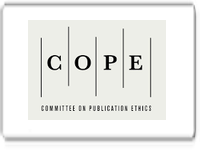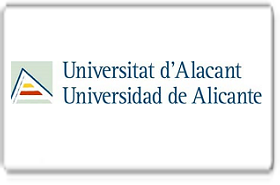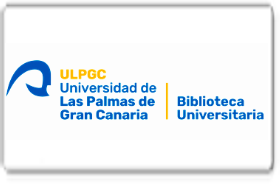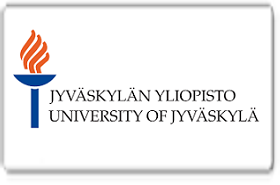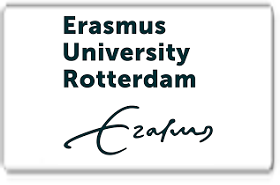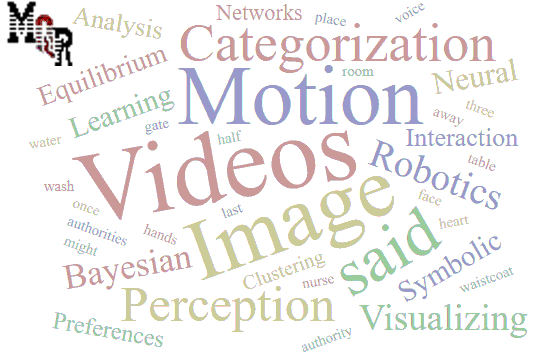El uso de estrategias de humor para motivar a los estudiantes de inglés B1 de la Universidad Católica de Cuenca
DOI:
https://doi.org/10.56048/MQR20225.7.4.2023.2739-2758Palabras clave:
humor; estrategias; motivación; EFL; estudiantesResumen
Motivar a los estudiantes de inglés como lengua extranjera (EFL), en particular a los de nivel B1, plantea un desafío importante. Las investigaciones sugieren que las estrategias de humor pueden mejorar eficazmente la motivación y el compromiso en el aprendizaje de idiomas. Sin embargo, existe la necesidad de explorar la percepción y las mayores impresiones sobre estrategias de humor, específicamente experiencias humorísticas, entre estudiantes de inglés como lengua extranjera B1 de la UCACUE. Por lo tanto, el propósito de este estudio fue analizar el impacto del humor y su asociación con la motivación y bajos niveles de ansiedad durante el proceso de aprendizaje de inglés en estudiantes de inglés como lengua extranjera B1 de la UCACUE. Una encuesta se realizó mediante un cuestionario. Este fue adaptado de la investigación de Salmee & Arif (2019) e involucró a 204 estudiantes de diversos orígenes académicos. Los hallazgos del estudio demostraron el impacto positivo de las estrategias de humor en la motivación y participación de los estudiantes de inglés B1 de la UCACUE. El análisis de las perspectivas de los estudiantes aclara las estrategias de humor específicas que dejan impresiones duraderas y mejoran efectivamente la motivación en el aprendizaje de idiomas.
Descargas
Métricas
Cited
DOI: 10.56048![]()
Citas
Al-Hamly, M. H. (2018). The role of humor in language learning: A literature review. International Journal of Research in English Education, 3(4), 11-16.
Arofah, F., & Syarif, S. (2019). The use of humorous materials to enhance EFL students' motivation in grammar learning. Ta'allum: Jurnal Pendidikan Bahasa dan Sastra Indonesia, 7(2), 121-131.
Bai, Z. (2020). Enhancing EFL learners' motivation and oral proficiency through humorous materials. Modern Journal of Language Teaching Methods, 10(12), 167-183.
Bown, J. (2015). The role of humor in fostering EFL learners’ willingness to communicate. ELT Journal, 69(4), 374–385.
Cifuentes, M., Contreras, R., & Beltrán, M. (2019). The Development of the English Language Teaching in the High Schools of Ecuador during the last two decades. Polo del conocimiento, 4(10), 89-98. doi:10.23857/pc.v4i10.1159
Deci, E. L., & Ryan, R. M. (1985). Intrinsic motivation and self-determination in human behavior. Springer.
Dörnyei, Z. (2009). The L2 motivational self-system. In Z. Dörnyei & E. Ushioda (Eds.), Motivation, language identity and the L2 self (pp. 9-42). Multilingual Matters.
Embalzado, H. & Sajampun, P. (2020). Perspectives of students in Thailand on the use of humor in university classroom. International Education Studies, 13(4), 17-26. doi:10.5539/ies.v13n4p17
Fatahi, S., & Yazdani, A. (2018). The effect of humor on motivation and language learning. Theory and Practice in Language Studies, 8(10), 1327-1332.
García-Carbonell, A., & Vidal, K. S. (2018). Using humorous materials to enhance EFL students' motivation in reading comprehension. How Journal, 25(2), 105-121.
Gardner, R. C. (1985). Social psychology and second language learning: The role of attitudes and motivation. Edward Arnold.
Gonulal, T. (2018). Investigating the potential of humour in EFL classrooms. The European Journal of Humour Research, 6(1), 141-161.
Han, T., & Bai, Z. (2020). Using humor to enhance EFL college students' autonomous learning. Journal of English Language Teaching and Linguistics, 5(2), 227-238.
HİŞMANOĞLU, M., ERSAN, Y., & TURAN, Y. (2018). Turkish EFL Learners’ Perceptions on Teachers’ Using Humor in the EFL Classroom. International Journal of Languages’ Education and Teaching, 6(2), 284-294.
Hsu, J. L. (2019). Humor in the language classroom: A review of the literature.Asian EFL Journal, 25(2), 3-26.
Javadi, A., & Banaruee, H. (2020). The role of humor in language learning: A systematic review. Journal of Language and Linguistic Studies, 16(3), 1009- 1023.
Jeong, J., & Kim, J. (2017). The effects of humor on second language learning: A literature review. The Journal of AsiaTEFL, 14(4), 756-769.
Jia, S., & Zhang, J. (2019). The effects of humorous materials on Chinese EFL learners' reading motivation. International Journal of English Language Teaching, 7(4), 31-47.
Jiang, Y. (2020). Humor in second language education: A review of the literature. TESOL Journal, 11(2), e00403.
Kang, J., & Xing, W. (2019). Enhancing EFL learners’ vocabulary learning through humor: The effect of teacher-led humorous instruction. Language Teaching Research, 23(6), 767–788.
Kyriacou, S., & Toh, G. (2021). The role of humor in second language learning: A systematic review. System, 96, 102453.
MacIntyre, P. D., & Gregersen, T. (2012). Emotions that facilitate language learning: The positive-broadening power of the imagination. Studies in Second Language Learning and Teaching, 2(2), 193-213.
Li, S. (2020). Investigating the effects of teacher humor on EFL learners' motivation and anxiety: A mixed-methods study. System, 90.
Maher, B. (2019). Humor in second language learning: A review of the research.TESOL Journal, 10(4), e00376.
Martin, R. A., & Lefcourt, H. M. (1983). Sense of humor as a moderator of the relation between stressors and moods. Journal of Personality and Social Psychology, 45(6), 1313-1324.
Martínez-Flor, A., & Usó-Juan, E. (2011). The effects of humor on vocabulary recall and retention in Spanish as a foreign language. Language Teaching Research, 15(3), 351-374.
McCeney, L. A. (2019). The effects of humor on second language learning: A review of the empirical literature. Journal of Second Language Studies, 2(2), 228-246.
Mekheimer, M. A. (2020). The impact of humor on second language learners' motivation: A systematic review. Arab World English Journal, 11(3), 248-261.
Mora-Rosado, R., & Romera, E. M. (2020). The role of humor in second language learning: A systematic review. Frontiers in Psychology, 11, 594.
Salmee, S. A., & Arif, M. M. (2019). A Study on the Use of Humour in Motivating Students to Learn English. Asian Journal of University Education, 15(3), 257-265.
Shams, M., & Keshavarz, M. H. (2018). The effects of humor on second language learning: A review. Theory and Practice in Language Studies, 8(11), 1479-1485.
Sung, H., & Jeong, H. (2021). The effect of humorous YouTube videos on EFL learners' motivation and engagement. English Language Teaching, 14(1), 104- 118.
Syarif, S. (2019). The effect of humor on EFL students' motivation in writing classes. Langkawi: Journal of The Association for Arabic and English, 5(1), 55-66
Tsui, A. B. M. (2017). Humor in the English language classroom: A review of the literature. TESOL Quarterly, 51(3), 557–586.
Wang, Z. (2020). Promoting learners’ language proficiency and motivation through humor in EFL classrooms. English Teaching & Learning, 44(2), 195 214.
Zhao, X. (2020). Humor in second language education: A research synthesis.The Modern Language Journal, 104(4), 747-764.
Zou, D., & Liu, X. (2018). Exploring the effect of humor on EFL classroom atmosphere. English Language Teaching, 11(12), 46-54.
Publicado
Cómo citar
Número
Sección
Categorías
Licencia

Esta obra está bajo una licencia internacional Creative Commons Atribución 4.0.
Los autores se comprometen a respetar la información académica de otros autores, y a ceder los derechos de autor a la Revista MQRInvestigar, para que el artículo pueda ser editado, publicado y distribuido. El contenido de los artículos científicos y de las publicaciones que aparecen en la revista es responsabilidad exclusiva de sus autores. La distribución de los artículos publicados se realiza bajo una licencia 


















